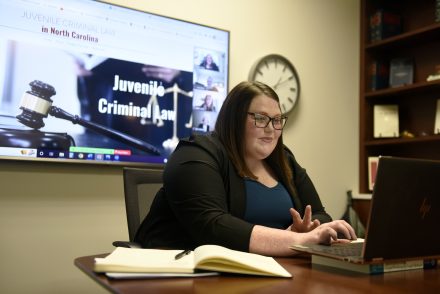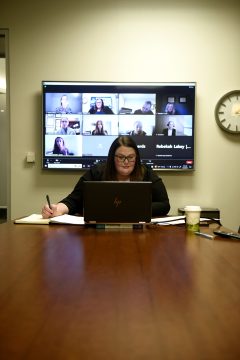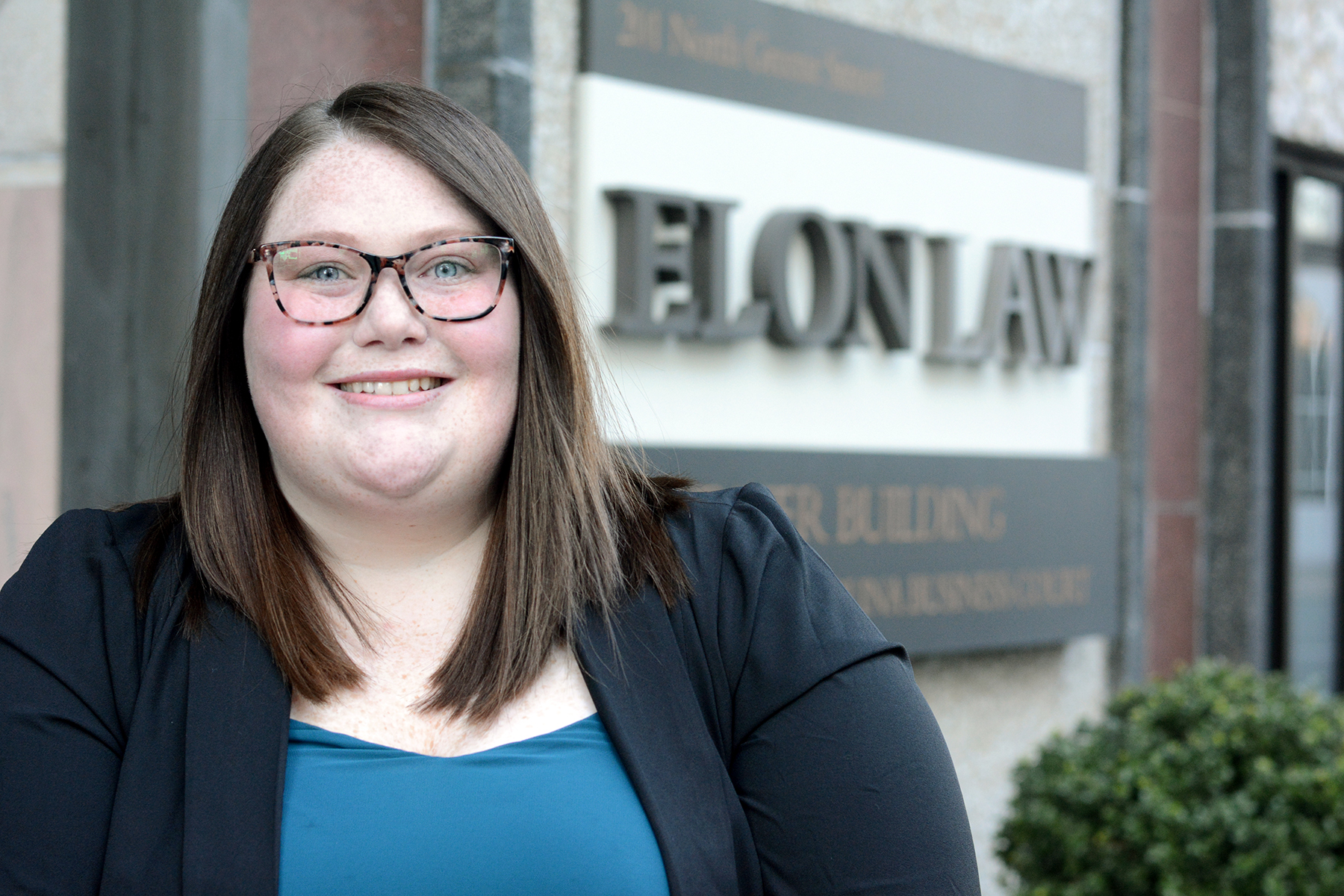Part of Morgan Earp L'22’s legacy at Elon Law will be an online resource she developed for North Carolina parents and guardians whose children find themselves facing criminal charges.
An Elon Law student set to graduate this month has developed an online resource she hopes will ease the anxieties of parents and guardians navigating North Carolina’s juvenile justice system for youth in trouble with the law.
Morgan Earp L’22 researched the process by which prosecutors and the courts resolve criminal charges against youth in the state under the age of 18. From petitions to probation to Superior Court referrals for the most serious crimes, North Carolina’s juvenile justice system currently operates, in Earp’s estimation, “behind a curtain.”
A website she created over the fall for her Leadership Fellows capstone project aims to demystify the system’s complexities – and a December 2 presentation to the Juvenile Justice and Children’s Rights Section of the North Carolina Bar Association earned her praise from attorneys who work every day with parents and guardians.

Earp’s next steps are to share the link via a printed QR code with attorneys, counselors, and advocates across North Carolina to share with their own clients and others who might benefit from the website.
“I saw the panic and the overwhelmed feeling that parents have about their child being caught in the criminal justice system,” Earp said before her presentation. “I wanted to make their experience less overwhelming, and less scary, and to make the system more transparent for them. This makes it easier for people to see what’s going on, what to expect, and what outcomes are possible.”

Earp has been set on a career in juvenile justice ever since high school in Arkansas when a cousin was charged with a crime. Earp recall that the juvenile justice system didn’t try to find the root cause of the crime itself. The experience paved her way to the legal profession.
“I want to be that attorney who asks a juvenile what we can do to help. Something has been happening to make them act like this,” Earp said. “In the system, everyone wants to talk for the kid – not allow them to talk for themselves. I want to give them a voice.”
Earp graduated from Arkansas Tech University with an Associate of Science in Criminal Justice and a Bachelor of Arts in Political Science. She served after graduation as an AmeriCorps member with Our House, which provides services to empower homeless and near-homeless families and individuals in Little Rock.
During her studies at Elon Law, Earp founded and served as president of the Native American Law Student Association. She completed her Leadership Externship with the Guilford County District Attorney’s Office, learning and assisting with juvenile prosecution.



